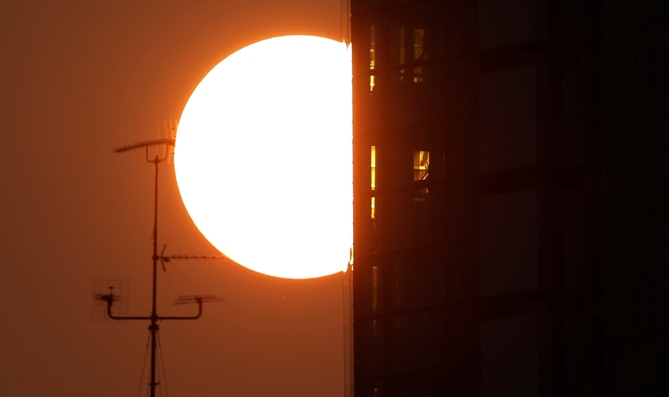Heat and humidity can be a dangerous combination
In 2020, eight Missourians died due to heat-related illnesses

JEFFERSON CITY, MO — The Missouri Department of Health and Senior Services (DHSS) urges Missourians of all ages to take precautions as heat and humidity rise to dangerous levels.
Heat-related illnesses often affect the very young, the elderly and the chronically ill, but summer temperatures can also take a toll on healthy young and middle-aged adults.
In 2020, 335 cases of heat-related illness, ranging in age from 5 months to over 90 years of age, were reported to DHSS. The average age of reported illness was 44.7 years of age. Of the reported cases, eight people, between 26 to 86 years of age, died from heat exposure.
During prolonged periods of high temperatures, using air conditioning – either at home or by seeking shelter in a local cooling center — is the best preventive measure.
“Keeping cool, hydrated and informed are important steps during excessive heat,” said Robert Knodell, Acting Director of DHSS. “Heat and humidity can take a toll on a person’s body, causing heat exhaustion and heat stroke with very little warning.
During excessive heat, Knodell urges Missourians to check on friends and neighbors, especially those who are elderly and chronically ill. To report a senior citizen or an adult with disabilities who is in need of assistance due to the heat, call the state’s toll-free abuse and neglect hotline at 1-800-392-0210.
Medications can impair a body’s response to heat, making them more vulnerable to the heat.
“Checking on those at greater risk for heat-related illnesses with the current COVID-19 situation can be as simple as making a phone call or sending a text message,” said Knodell. “A quick wellness check could potentially save someone’s life.”
There are a number of steps individuals can take to stay cool including:
- Wear appropriate clothing—wear lightweight, light-colored, loose-fitting clothing.
- Stay cool indoors—stay in air-conditioned places as much as possible. Find a local cooling center.
- Stay hydrated—drink plenty of fluids regardless of your activity level, and do not wait to until you are thirsty. Avoid sugary and alcoholic beverages; these actually cause you to lose body fluids.
- Schedule outdoor activities carefully—try to plan outdoor activity for morning or evening hours when the temperature is coolest.
- Pace yourself—reduce exercise or physical activity during the hottest part of the day, and take frequent breaks in the shade or in an air-conditioned place.
- Wear sunscreen—sunburn affects your body’s ability to cool down and can make you dehydrated.
- Prepare your home—change air conditioner filters, cover windows that receive morning or afternoon sun with drapes or shades, and make sure you have portable fans if necessary.
Knowing the signs and symptoms of heat related illness and how treat them is also important. Signs of heat exhaustion may include muscle cramps; heavy sweating; cold, pale and clammy skin; dizziness; headache; nausea or vomiting; and fainting or passing out. If you think you or a loved one are experiencing heat exhaustion, you should stop physical activity move to a cool place—preferably air-conditioned, loosen clothing, and sip cool water.
Seek medical attention immediately if you are throwing up, your symptoms get worse or symptoms last longer than one hour.
Signs of heat stroke may include high body temperature (103°F or higher); hot, red, dry or damp skin; fast, strong pulse; headache; dizziness; nausea; confusion; or loss of consciousness. If you think you or a loved one are experiencing heat stroke you should call 911 immediately.
Heat stroke is a medical emergency. Move the person to a cool place—preferably air-conditioned. Help lower the person’s body temperature with cool cloths or a cool bath until medical personnel arrive. Do not give the person anything to drink.



